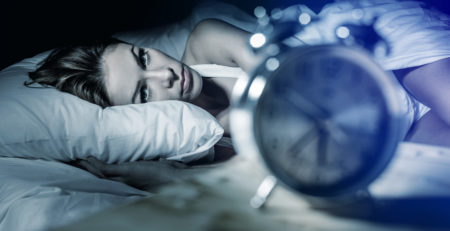Acute Psychosis: Symptoms, Diagnosis and Treatment
Contrary to popular stereotype, people with acute psychosis are rarely violent or dangerous. Nor are they necessarily homeless and disheveled, or the products of dysfunctional families. And they definitely are not beyond help.
Much of the stereotypical “psycho” image likely results from confusing “psychosis” and “psychopath.” To mental-health professionals, a psychopath has a form of antisocial personality disorder (inability to empathize) that manifests in manipulating others without remorse. Psychosis affects a person’s ability to perceive and process reality: their minds show them things that aren’t there or convince them of false “facts.”
Symptomatic of several mental illnesses as well as hallucinogenic drug use, psychosis can be chronic (an ongoing lifelong problem, as with many schizophrenia patients) or acute (occurring as one-time or separate temporary episodes). Chronic psychosis is managed with medication. Acute psychosis requires treatment for the immediate episode, plus subsequent evaluation for causes and future risks.
Causes of Acute Psychosis
Some 3 percent of the population will experience at least one psychotic episode in a lifetime. One common trigger is the use of drugs that induce hallucinogenic effects. Other possible causes include:
- Traumatic brain injury
- Brain tumors or strokes
- STDs such as syphilis
- Epilepsy
- Alzheimer’s disease
Some people also experience episodes of brief reactive psychosis at times of extreme grief or stress.
Symptoms of Acute Psychosis
Someone may be suffering from acute psychosis if he or she displays:
- Irrational fear of certain people and situations
- Insistence, in the face of obvious contrary evidence, that someone is spying on them or trying to hurt them
- Reactions to alleged sights, voices, odors or other sensations no one else can locate
- Impaired communication skills
- Uncharacteristic and disorganized posture/movement/responsiveness
- Suicide threats or panicked reckless behavior
Although it’s commonly believed that psychotic episodes are also characterized by unshakable commitment to the hallucinations and delusions, this isn’t invariably the case. Many people, especially if they’ve been treated for acute psychosis before, can distinguish intellectually between what’s real and what’s isn’t, but still struggle to resist compulsive feelings that what they’re subjectively experiencing is actually there.
In Case of a Psychotic Emergency
Most acute psychosis isn’t a matter of “normal one day, completely erratic the next.” It’s more typical for symptoms to begin subtly and intensify over a week or two. So even if someone is behaving “just a little” strangely, it’s best to consult a doctor sooner rather than later.
If a full-blown psychotic episode is already occurring:
- Remain calm and do what you can to calm the affected party. Avoid raising your voice or making any sudden moves.
- Keep an eye on the affected person, but maintain safe distance in case they lash out in panic.
- Call for emergency help. Emphasize that you suspect a psychotic episode and need someone trained in dealing with such, especially if police may be dispatched: loaded guns and erratic behavior can be a recipe for tragedy.
- Be prepared to provide details on the patient’s health history, any drugs taken and any recent behavior anomalies.
Treatment for Acute Psychosis
After someone is referred for psychosis treatment, the first step is to deal with any immediate dangers (drug overdose, injuries, seizures). Once stable, the patient will be evaluated and treated for the cause of the acute psychosis—typically drug addiction, schizophrenia or bipolar disorder.
While one acute psychosis episode doesn’t necessarily mean another will occur, it’s important to be aware of the possibility. Consult a doctor promptly if there is any suspicion a new episode may be developing. And to minimize that risk:
- Stay in touch with your doctor.
- If prescribed an antipsychotic medication, take it as directed, never according to whether you feel better.
- Take consistent care of your overall health.
- Don’t be discouraged by mental-illness-related stigma. Keep busy with goals that fit your individual interests, and practice a positive attitude toward your future.
Help for Psychosis-Related Problems
At Serene Behavioral Health, we provide professional medical treatment for psychosis-triggering conditions such as bipolar disorder and schizophrenia. We understand that mental illness is no one’s fault and nothing to be ashamed of, and that when properly managed, it needn’t keep anyone from living a full life. Contact us to get help for your family!
















